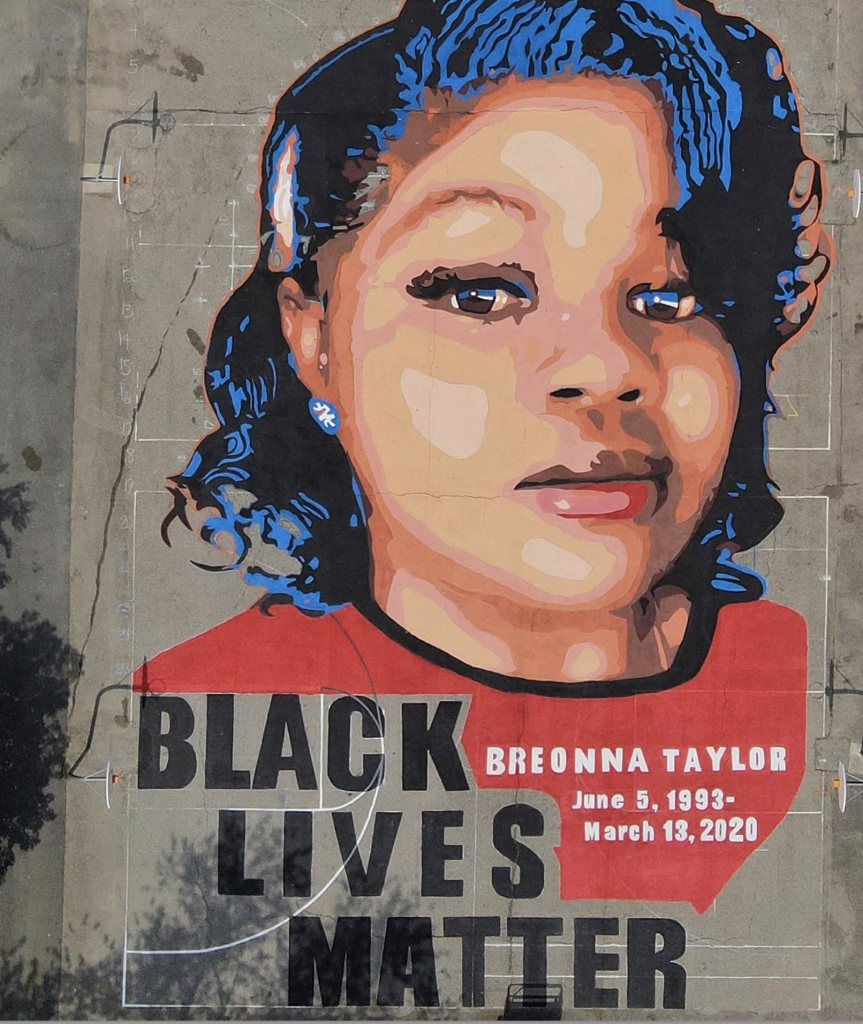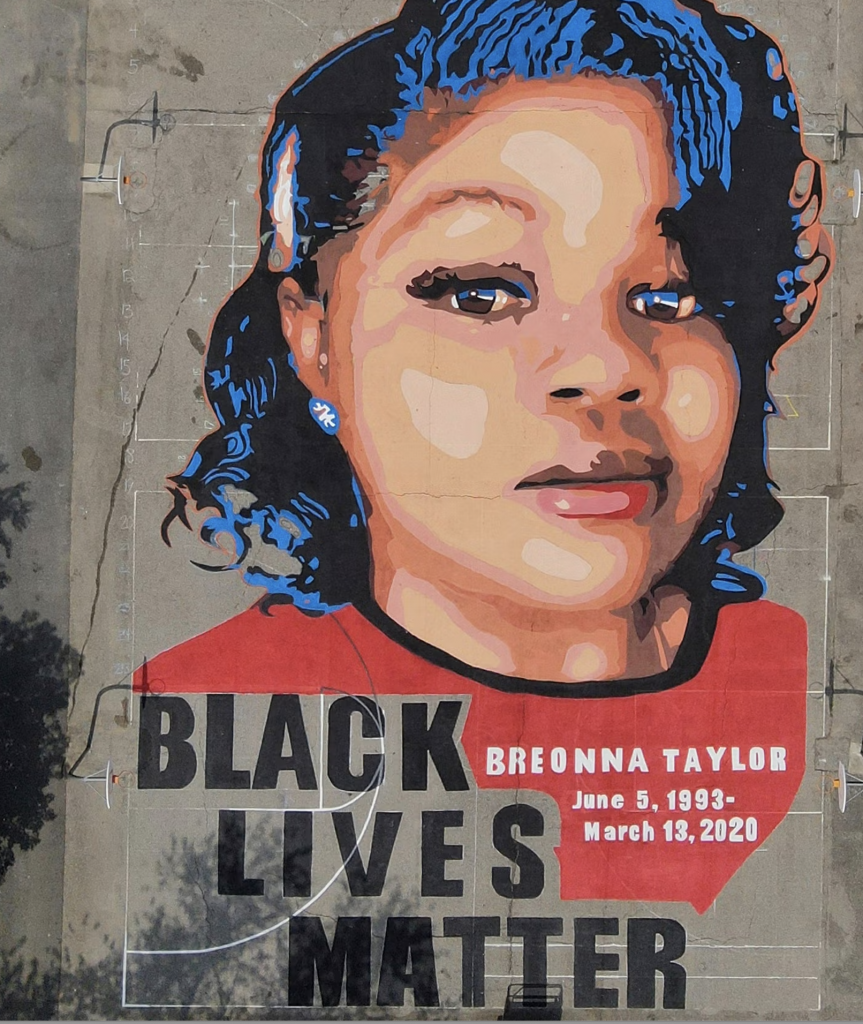
The Story & Verdict
Former Louisville detective Brett Hankison was federally convicted in 2024 of violating Breonna Taylor’s civil rights specifically for firing ten blind shots into her home during a botched March 13, 2020 no‑knock raid. Although his bullets did not strike Taylor or anyone else, a jury found his conduct excessive and unlawful under civil‑rights statutes. Federal sentencing guidelines recommended 11–14 years in prison. Instead, the Justice Department recently filed a memo recommending a one‑day sentence effectively time served followed by three years of probation.
Taylor’s family’s attorneys, including Ben Crump, strongly condemned the DOJ’s recommendation as “an insult to the life of Breonna Taylor” and “a blatant betrayal of the jury’s decision,” warning it sets a precedent of impunity for white officers violating Black Americans’ civil rights. Rep. Morgan McGarvey (D‑KY) described the sentence as “morally reprehensible and deeply insulting,” while Congresswoman Ayanna Pressley labeled it “a cruel and disrespectful message” that diminishes Taylor’s life and legacy.
Why We Need GoVia – and a Broader Civil Rights Lens
GoVia’s mission identifying and elevating local heroes who challenge systemic injustice is especially vital here. Taylor’s family, civil rights attorneys, community leaders, and advocates stand as heroes demanding real accountability. Their fight illuminates the broader civil rights struggle against normalized police violence and legal double standards.
Why leverage GoVia’s platform now?
- Put a spotlight on community leaders and legal advocates pressing for justice.
- Amplify the demands for comprehensive reform—not just symbolic sentencing.
- Engage public momentum in support of national bans on no-knock warrants.
The Case Against a One‑Day Sentence (and Against No‑Knock Warrants)
1. Justice vs. Impunity
- The DOJ’s lenient recommendation directly contradicts the jury’s findings and the U.S. Probation Office’s much harsher guidelines (11–14 years).
- “Real accountability” is essential otherwise, the message is clear: civil rights violations by police merit minimal consequences.
2. Constitutional & Human Rights Impact
- No‑knock warrants inherently risk fatal misunderstandings—especially under the “castle doctrine,” which protects homeowners unaware they’re facing law enforcement.
- Taylor’s case exemplifies this fatal clash: her partner Kenneth Walker fired in self-defense, unaware that officers were entering legally, with catastrophic results.
3. National Stats: Cost–Benefit?
- No‑knock raids skyrocketed from ~1,500 annually in the early 1980s to 60,000–70,000 per year by 2010, mostly for low-level drug investigations.
- From 2010–2016, 31 civilians and 8 officers died during no‑knock SWAT raids; half of civilian deaths were people of color.
- Such raids disproportionately target Black communities SWAT raids target Black households at nearly four times the rate of white homes.
- These numbers underscore the ineffectiveness and extraordinary risks of no-knock tactics.
4. Case Law & Precedents
- Kathryn Johnston (Atlanta, 2006): A 92‑year‑old Black woman was killed during a no‑knock raid on false drug intel. Officers fired 39 shots; none was injured. Investigations revealed falsified evidence. Officers were convicted, sentenced (5–10 years) for manslaughter and cover‑up.
- Marvin Guy (Texas, 2014): An individual convicted of murder after firing back during a no‑knock raid. He served life raising complex questions about self‑defense in the castle‑doctrine context.
- Courts review warrant entries under the Fourth Amendment “from the perspective of a reasonable officer on the scene” without hindsight but in Taylor’s case the jury found Hankison’s actions unreasonable even in context.
Powerful Quotes for Civil Rights Context
Nelson Mandela: “To deny people their human rights is to challenge their very humanity.”
Frederick Douglass: “Power concedes nothing without a demand. It never did and it never will.”
Huey P. Newton: “The revolution has always been in the hands of the young.”
These words echo Taylor’s family’s ongoing struggle: demanding that her humanity not be devalued by a justice system that delivers minimal accountability.
Why No‑Knock Warrants Must Be Abolished
- Disproportionate harm, often leading to deaths of innocents.
- Legal contradictions: they conflict with home-defense doctrines and create confusion on all sides.
- Statistical evidence shows they inflict more harm than any potential benefit.
- The shift from symbolic bans (e.g. Breonna’s Law in Louisville and Kentucky) to federal prohibition (e.g. Justice for Breonna Taylor Act) remains urgent; state-level fixes are incomplete.
GoVia Take: The Role of GoVia
GoVia can:
- Center stories of those demanding justice from Taylor’s family to community leaders.
- Illustrate how systemic reform not weak sentencing is the path toward true accountability.
- Mobilize public awareness and advocacy for federal legislation banning no‑knock warrants.
A one‑day sentence recommendation is not a compromise it is a breakdown of accountability. The loss of Breonna Taylor deserves more than symbolic justice.
Call to Action
- Highlight civic heroes in legal advocacy, activism, and legislative reform.
- Expand the platform to elevate stories of families like Taylor’s demanding national change.
- Support federal efforts like the “Justice for Breonna Taylor Act.”
Breonna’s legacy and the civil‑rights movement she inspired must not be silenced by leniency that condones injustice.






One thought on “Breonna Taylor’s Family is ‘Heartbroken’ Over One‑Day Sentence Recommendation for Ex‑Cop”
OMG…THIS IS A TOTAL INSULT. IT IS KUST HEART BREAKING. WHAT A SLAP IN THE FACE, A JOKE TO HER LEGACY. MY GOD.